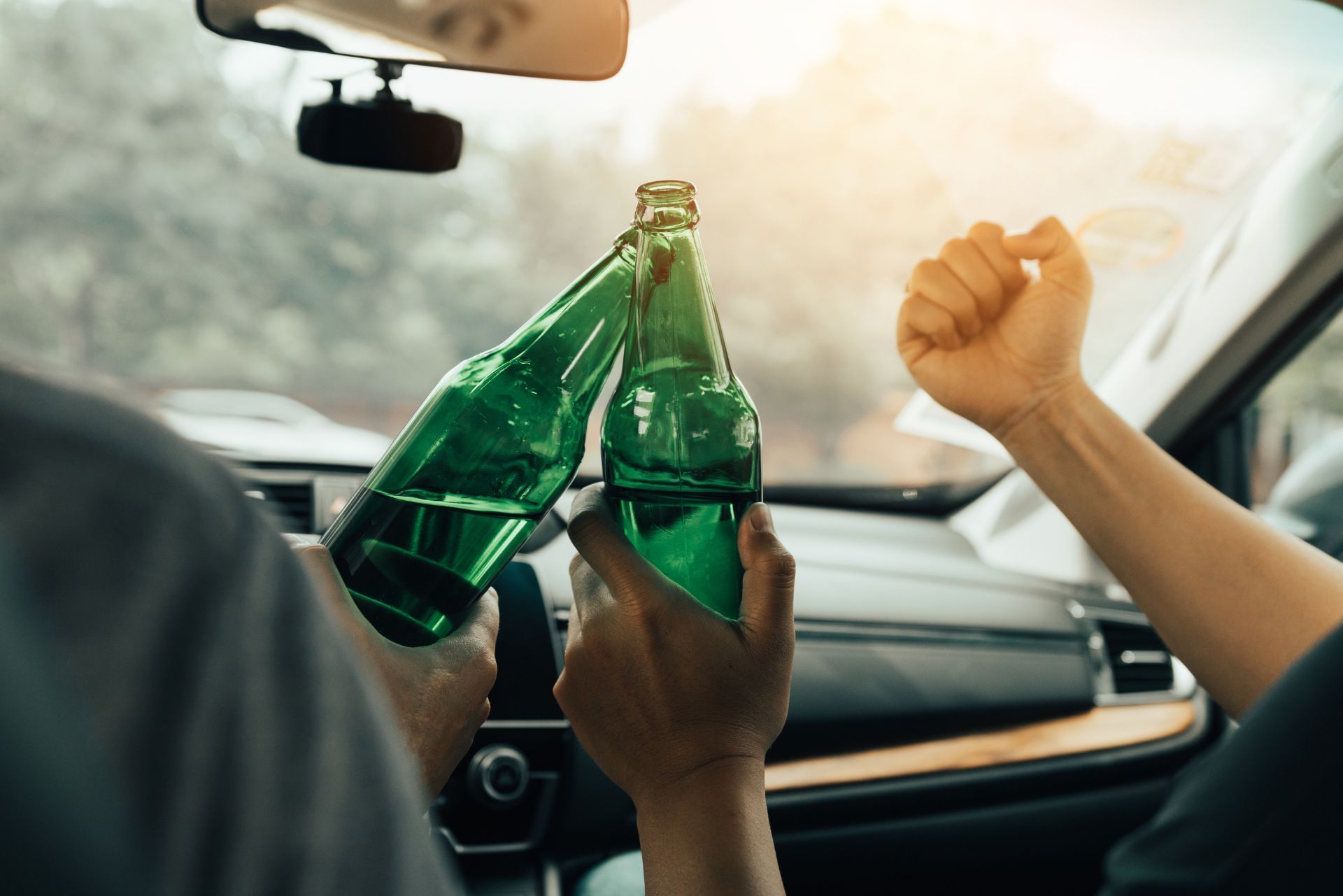
Driving under the influence (DUI) is a serious offense that can have lasting consequences, especially when it comes to insurance. In Pinellas Park, Florida, individuals facing DUI charges may find themselves navigating a complex landscape of insurance requirements, costs, and coverage options. This article aims to provide comprehensive information about DUI insurance in Pinellas Park, helping residents understand their options and obligations.
Understanding DUI Insurance
DUI insurance refers to the specialized coverage required for individuals who have been convicted of driving under the influence. When a driver is charged with DUI, their insurance situation changes significantly. Standard policies may no longer be available, and individuals may need to seek out high-risk insurance options. This shift not only affects the cost of premiums but also the overall accessibility of insurance products, as many providers may choose to deny coverage altogether to those with a DUI on their record.
What is High-Risk Insurance?
High-risk insurance is a type of coverage designed for drivers deemed more likely to file a claim due to their driving history. After a DUI conviction, many insurance companies categorize the driver as high-risk, which can result in higher premiums and limited coverage options. This insurance is essential for maintaining legal driving status and protecting oneself financially in the event of an accident. Additionally, high-risk insurance policies often come with stricter terms, such as higher deductibles and fewer available discounts, making it crucial for drivers to shop around and compare different providers to find the best possible rates.
Why is DUI Insurance Necessary?
In Florida, having auto insurance is mandatory, and a DUI conviction can complicate this requirement. Individuals convicted of DUI may be required to obtain an SR-22 form, which is a certificate of financial responsibility. This form is filed with the state to prove that the driver has the minimum required insurance coverage. Without it, individuals may face license suspension or other penalties. Furthermore, the repercussions of a DUI extend beyond immediate insurance implications; they can affect employment opportunities, personal relationships, and even lead to increased scrutiny from law enforcement during future traffic stops. Understanding the full scope of these consequences can help individuals navigate the challenges that arise after a DUI conviction and make informed decisions about their insurance needs.

How DUI Affects Insurance Rates
One of the most immediate impacts of a DUI conviction is the increase in insurance rates. Insurance companies view DUI offenders as high-risk clients, which can lead to significant hikes in premiums. Understanding how this process works can help individuals prepare for the financial implications of a DUI.
Factors Influencing Rate Increases
Several factors contribute to the increase in insurance rates following a DUI conviction. These include the driver's previous driving history, the severity of the offense, and the insurance company’s policies. Generally, the more severe the DUI charge, the higher the potential increase in premiums. For instance, a first-time offender may face a smaller increase compared to someone with multiple offenses or aggravating factors, such as an accident or injury involved. Additionally, some insurers may consider the time elapsed since the DUI conviction; a more recent offense is likely to result in a steeper rate hike.
Duration of Rate Increases
Typically, the impact of a DUI on insurance rates lasts for a period of three to five years. During this time, drivers may find it challenging to secure affordable coverage. However, as time passes and the driver's history improves, they may become eligible for lower rates again. It’s also worth noting that some states have programs that allow offenders to complete certain educational courses or rehabilitation programs, which can sometimes help mitigate the financial burden of increased premiums. Furthermore, drivers should be proactive in shopping around for insurance quotes, as different companies may have varying policies regarding how they assess risk and calculate premiums for DUI offenders.
In addition to the immediate financial repercussions, a DUI conviction can also affect other aspects of a driver’s life, including employment opportunities. Many employers conduct background checks that include driving records, and a DUI can raise red flags for potential employers, particularly in industries that require driving as part of the job. This can lead to a ripple effect, where the individual not only faces higher insurance costs but also potential job loss or difficulty finding new employment. Understanding these broader implications can help individuals make informed decisions and take steps to mitigate the consequences of a DUI conviction.
Finding DUI Insurance in Pinellas Park
Finding the right DUI insurance policy in Pinellas Park can be daunting, but understanding the options available can ease the process. Various insurance companies offer high-risk insurance, and comparing quotes is essential to finding the best coverage at an affordable rate.
Researching Insurance Providers
Begin by researching insurance providers that specialize in high-risk coverage. Many companies cater specifically to individuals with DUI convictions, providing tailored policies that meet state requirements. Online resources and consumer reviews can help identify reputable providers. Additionally, consider reaching out to local insurance agents who have experience with DUI cases; they can offer personalized advice and may have insights into which companies are more favorable to clients with similar backgrounds.
Getting Quotes
Once potential providers are identified, obtaining quotes is the next step. It is advisable to gather quotes from multiple companies to compare coverage options and premiums. Be prepared to provide information about the DUI conviction, driving history, and personal details to receive accurate quotes. Furthermore, when reviewing these quotes, pay attention not only to the price but also to the coverage limits, deductibles, and any additional benefits that may be included, such as roadside assistance or accident forgiveness. Understanding these nuances can help ensure that you select a policy that not only fits your budget but also provides adequate protection on the road.
Understanding State Requirements
In Florida, it’s crucial to be aware of the state’s minimum insurance requirements for DUI offenders. Typically, the law mandates higher liability limits for those with DUI convictions, which can significantly impact the cost of premiums. Familiarizing yourself with these requirements can help you avoid potential legal issues and ensure you’re compliant with state regulations. Additionally, some insurers may offer discounts for completing alcohol education programs or safe driving courses, so it’s worth inquiring about any such options that could lower your overall costs.
Types of Coverage Available
DUI insurance policies can vary significantly in terms of coverage. Understanding the different types of coverage available can help individuals make informed decisions about their insurance needs.
Liability Coverage
Liability coverage is the minimum required by law in Florida. It covers damages to other vehicles and injuries sustained by other parties in an accident where the insured is at fault. After a DUI conviction, maintaining adequate liability coverage is crucial to avoid legal repercussions. Failing to meet the state’s minimum requirements can lead to severe penalties, including fines and the potential suspension of driving privileges. Moreover, having sufficient liability coverage can protect personal assets in the event of a lawsuit stemming from an accident.
Comprehensive and Collision Coverage
Comprehensive and collision coverage are optional but can provide additional protection. Comprehensive coverage protects against non-collision-related incidents, such as theft or natural disasters, while collision coverage pays for damages to the insured vehicle in the event of an accident, regardless of fault. These coverages can be particularly valuable for individuals with newer or more valuable vehicles. Additionally, in the aftermath of a DUI conviction, individuals may find themselves in a more vulnerable position regarding their vehicle's safety and security, making these coverages even more essential. In some cases, lenders may require comprehensive and collision coverage for financed vehicles to protect their investment.
Uninsured/Underinsured Motorist Coverage
This type of coverage protects drivers in the event of an accident with an uninsured or underinsured motorist. Given the potential for increased risk following a DUI conviction, having this coverage can provide peace of mind and financial protection. It is especially important in areas where uninsured drivers are more prevalent, as it ensures that victims of accidents can still receive compensation for medical expenses and damages. Furthermore, this coverage can also extend to hit-and-run incidents, offering an additional layer of security for those who may find themselves in precarious situations on the road.
Legal Requirements for DUI Insurance in Florida
Florida has specific legal requirements regarding DUI insurance that individuals must adhere to after a conviction. Understanding these requirements is essential for maintaining legal driving status.
SR-22 Form Requirement
As mentioned earlier, individuals convicted of DUI are often required to file an SR-22 form. This document serves as proof of financial responsibility and must be submitted to the Florida Department of Highway Safety and Motor Vehicles. The SR-22 must remain active for a minimum of three years following the DUI conviction. Failure to maintain this form can result in the suspension of driving privileges, making it imperative for individuals to keep their insurance provider informed of any changes in their policy status.
Additionally, it's important to note that not all insurance companies offer SR-22 filings. Therefore, individuals may need to shop around to find an insurer that can accommodate this requirement. Some companies may charge higher premiums due to the increased risk associated with a DUI conviction, so it’s wise to compare rates and coverage options to find the best fit for one’s financial situation.
Minimum Insurance Coverage Limits
Florida law mandates minimum insurance coverage limits for drivers. For liability coverage, the minimum required is $10,000 for bodily injury per person, $20,000 for bodily injury per accident, and $10,000 for property damage. It is crucial for individuals to ensure their policy meets these minimums to avoid further legal complications. In addition to these basic requirements, many experts recommend considering higher coverage limits, especially given the potential costs associated with accidents involving injuries or significant property damage.
Moreover, individuals should be aware that Florida is a no-fault state, which means that drivers are required to carry Personal Injury Protection (PIP) insurance. This coverage helps pay for medical expenses and lost wages regardless of who is at fault in an accident. For those with a DUI conviction, ensuring compliance with both the minimum liability limits and PIP requirements is essential for reinstating driving privileges and avoiding additional penalties.

Tips for Managing DUI Insurance Costs
While DUI insurance can be costly, there are strategies individuals can employ to manage and potentially reduce their insurance expenses. Implementing these tips can help alleviate some of the financial burdens associated with a DUI conviction.
Shop Around for Quotes
As previously mentioned, shopping around for quotes is one of the most effective ways to find affordable DUI insurance. Different insurers have varying policies and rates, so taking the time to compare options can yield significant savings. It's also beneficial to consider not just the premium costs but also the coverage limits and deductibles. Some companies might offer lower premiums but have higher deductibles, which could end up costing more in the event of an accident. Additionally, leveraging online comparison tools can streamline this process, allowing individuals to quickly assess multiple options without the need for extensive phone calls or in-person visits.
Consider Payment Options
Some insurance companies offer flexible payment plans that can help individuals manage their premiums. Opting for monthly payments instead of a lump sum can make it easier to budget for insurance costs. Additionally, some insurers may provide discounts for paying in full upfront. It’s also worth exploring whether the insurer offers any loyalty programs or incentives for long-term customers, as these can further reduce costs over time. Furthermore, setting up automatic payments can sometimes lead to additional savings, as insurers may reward customers for consistent, on-time payments.
Maintain a Clean Driving Record
After securing DUI insurance, it is vital to maintain a clean driving record. Avoiding further violations can help improve insurance rates over time. Many insurers offer discounts for safe driving, which can lead to reduced premiums as the driver’s history improves. In addition to avoiding traffic violations, taking a defensive driving course can also demonstrate a commitment to safe driving practices, potentially leading to further discounts. Moreover, staying informed about the specific criteria that insurers use to evaluate driving records can empower individuals to make better choices on the road, ultimately contributing to a more favorable insurance profile.
Understanding the Impact of DUI on Future Insurance
A DUI conviction can have lasting effects on an individual's insurance landscape. Understanding these impacts can help individuals plan for the future and make informed decisions about their driving and insurance needs.
Long-Term Consequences
Even after the SR-22 requirement ends, a DUI conviction can remain on a driving record for up to 75 years in Florida. This long-term consequence can affect insurance rates and the ability to secure coverage in the future. Drivers should be aware of this when considering their long-term driving habits and insurance needs.
Rebuilding Trust with Insurers
Over time, individuals can rebuild trust with insurance companies by demonstrating responsible driving behavior. As time passes without additional incidents, drivers may become eligible for lower rates and better coverage options. Engaging in safe driving practices and completing any recommended rehabilitation programs can also positively influence insurance evaluations.
Resources for DUI Offenders in Pinellas Park
For individuals facing DUI charges or those seeking DUI insurance, various resources are available in Pinellas Park. These resources can provide support, information, and guidance throughout the process.
Local Support Groups
Support groups for individuals dealing with DUI convictions can be invaluable. These groups offer a platform for sharing experiences, receiving emotional support, and learning from others who have faced similar challenges. Local organizations may host meetings or provide online resources for those in need.
Legal Assistance
Seeking legal assistance can be crucial for navigating the complexities of DUI charges and insurance requirements. Local attorneys specializing in DUI cases can provide guidance on legal rights, potential consequences, and strategies for minimizing penalties. They can also assist in understanding the insurance implications of a DUI conviction.
Conclusion
Navigating the world of DUI insurance in Pinellas Park, FL, can be challenging, but understanding the requirements, options, and strategies available can empower individuals to make informed decisions. By researching insurance providers, comparing quotes, and maintaining a clean driving record, individuals can manage the financial implications of a DUI conviction effectively. With the right resources and support, it is possible to move forward and regain control over one’s driving and insurance situation.
Contact Us


